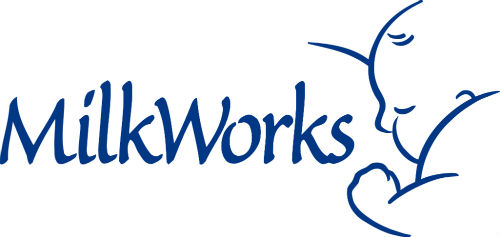The day that MilkWorks opened its doors in 2001, some of our current clients were watching Barney, while others were kicking soccer balls on the playground or dreaming of prom. Parenting magazines (websites were still not common place) featured articles focusing on some pretty basic concerns for breastfeeding mothers: How often? How long? One side or both?
MilkWorks is now 18. And my, how the issues have changed as breastfeeding support has evolved. We know so much more about how breastfeeding works, but the barriers are so much bigger now.
A multitude of people have impacted the culture of breastfeeding in our state and country: Senator Annette Dubas introduced and passed legislation to make Nebraska the 49thstate to protect breastfeeding in public. The Affordable Care Act amended the Fair Labor Standards Act and mandated that employers provide private spaces and reasonable breaks for mothers in the workforce. Moms now have insurance coverage (private or Medicaid) for breast pumps and IBCLC consults. The number of milk banks has doubled and it is rare to find a NICU that does not provide human milk for premature babies.
This year in Nebraska, the 106thlegislature may go down as the breast session yet. There are three legislative bills that impact breastfeeding families. Yet, the more that breastfeeding becomes legal and covered and protected, the more barriers we discover. Legislation may open doors and create awareness, but it doesn’t guarantee that everyone will climb on board. Changing attitudes is often much harder than changing a law.
Fortune recently reported on a new study which shows that a whopping two thirds of breastfeeding discrimination cases over the past decade led to the employee losing her job. The research was conducted by the Nursing Mothers Law Project through the Center for WorkLife Law at the University of California, Hastings College of Law. Researchers said they were shocked at what they learned. Discrimination results in early weaning, diminished milk supplies, or painful infections. Losing your job, on top of these health risks, adds economic penalties which can stress a new family - just when we should be supporting them the most.
Today, questions about how to breastfeed have evolved. Breastfeeding support is much more complex. Parents now face challenges like inadequate paid maternity leave (virtually the worst in the world), a complicated insurance reimbursement system, a lack of widespread availability to banked donor milk (when a mom cannot provide enough for her baby), the need to support families with unique gender identities, and the fact that breastfeeding support still looks very white.
MilkWorks is pleased to collaborate with Partnership for a Healthy Lincoln to help make breastfeeding support look more like all of the mothers in our community. Culturally diverse support is not something we can just say or do for a mother. It is making sure that, at least, some of the people who support her look like her, talk like her, and/or share similar cultural values and beliefs.
Turning 18 is a milestone for most Americans. We can vote, join the military, serve on a jury, donate blood or be an organ donor, obtain a credit card, get a tattoo and work full time. Life becomes full of more opportunities, but it also carries much more responsibility.
MilkWorks, and the many organizations and people who are working to create a supportive environment for breastfeeding mothers, have their work cut out for them. It will take a village to create change- but if the past 18 years are any indication of what can be accomplished, I have no doubt that a multitude of barriers will go by the wayside as we work to protect the well-being of our youngest citizens.
